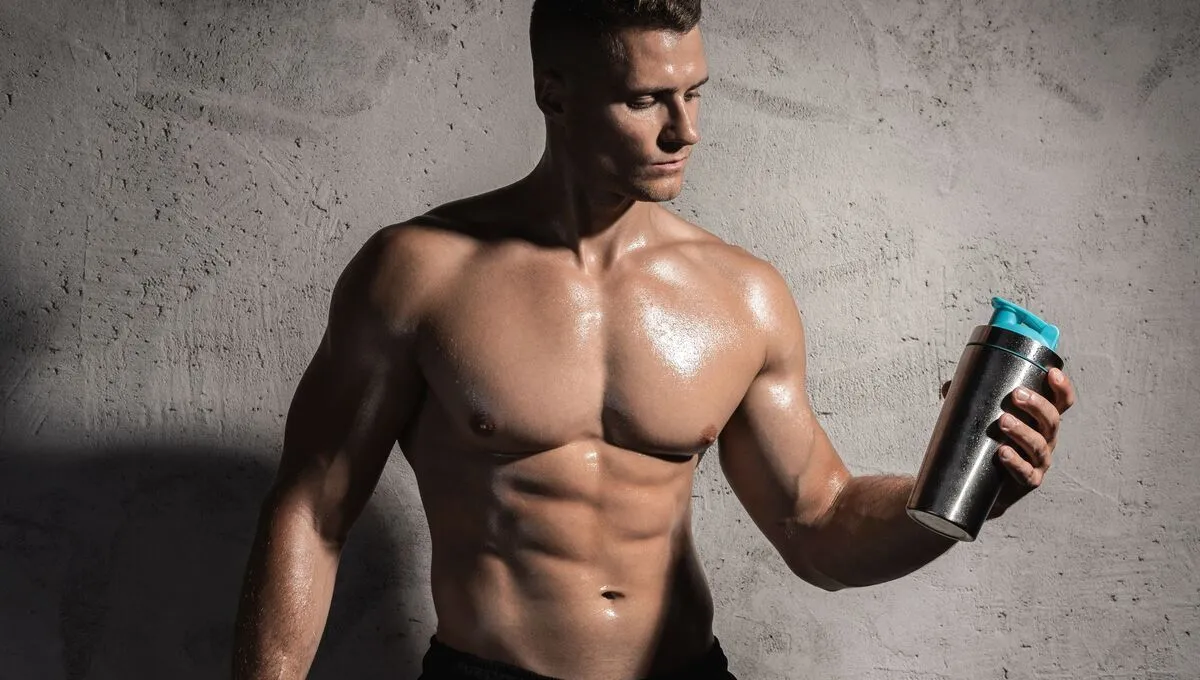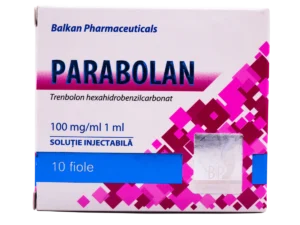Protein is large biomolecules, or macromolecules, consisting of one or more long chains of amino acid residues. Proteins perform a vast array of functions within organisms, including catalysing metabolic reactions, DNA replication, responding to stimuli, providing structure to cells, and organisms, and transporting molecules from one location to another. Proteins differ from one another primarily in their sequence of amino acids, which is dictated by the nucleotide sequence of their genes, and which usually results in folding into a specific 3D structure that determines its activity.
In a broader sense, a protein (protein, polypeptide) is an organic substance consisting of covalently linked amino acids and forming a polypeptide. Proteins are the basis of muscle tissue and are a key dietary component. Muscle growth is possible only when the body creates a positive nitrogen balance. In addition, protein in bodybuilding is understood as a type of sports nutrition that consists of concentrated protein.
The functions of the body’s proteins are very diverse. Enzyme proteins provide biochemical reactions and play an important role in metabolism. Some proteins perform a structural or mechanical function, forming a cytoskeleton that maintains the shape of cells. Proteins also play an important role in cell signaling systems, the immune response and the cell cycle. In bodybuilding, the main importance is attached to the contractile function of proteins – all voluntary and involuntary movements are made due to the interaction of protein molecules.
Protein in bodybuilding
Given the variety of functions and biological effects of protein and its components – amino acids, in bodybuilding proteins are used for various purposes: to reduce body fat, to stimulate muscle growth, as well as to maintain a healthy physical shape. Let’s consider in more detail functions of proteins actual for concrete sports activity and all questions of their application.
Dietary sources of protein:
– Proteins in food
– Protein products
– Protein dishes (recipes)
Which protein to choose:
– Protein for weight loss and drying
– Protein for gaining muscle mass
– Lactose-free protein and gainer
Optimal doses of protein per day
– Calculation of daily protein requirements
– How to take protein
– How much protein do you need per day
It is often stated that the need for protein does not exceed 2 grams per kilogram of body weight per day. In Jose Antonio’s study (“A high protein diet (3.4 g/kg/d) combined with a heavy resistance training program improves body composition in healthy trained men and women – a follow-up investigation”.
· Participants in group 1 received 3.4 g / kg / day and on average they increased weight by 2.5 kg, decreased fat mass by 1.7 kg, fat percentage decreased by 2.4%.
· Participants in group 2 received 2.3 g / kg / day. They increased weight by 1.3 kg, reduced fat by 2.2 kg, fat percentage decreased by 0.7%.
Thus, a high-protein diet of 3.4 g / kg / day in combination with bodybuilding training was more preferable in terms of changes in body composition (muscle growth and fat burning).
The best time to take protein
– The best time to take protein
– How often you need to take protein
Making a cocktail
Dissolve the protein in water, juice or milk as you prefer. If you tolerate milk well, then try to make cocktails with it, as it increases the value of protein, milk contains many biologically active substances, as well as improves the taste of the cocktail. Use skim milk.
The portion size should be 30-35g. Of course, it is permissible to exceed these quantities, but it is completely impractical. Many are in favor of taking large portions of protein – up to 50 and even 60 g per serving, but after exceeding the dose of 30 g, the growth of anabolism in the muscles stops.
The portion after training depends on the program and loading
A new University of Stirling study (McNaughton L. S. et al. The response of muscle protein synthesis following whole-body resistance exercise is greater following 40 g than 20 g of ingested whey protein //Physiological Reports. – 2016. – Т. 4. – №. 15. – С. e12893) published in August 2016 reconciled the ongoing debate about the ideal portion of protein after strength training.
The main conclusions of the research and comments of scientists:
– When training on a split program, 20-25 g of protein is enough.
– When training the whole body requires 40 g of protein for maximum stimulation of protein synthesis in the muscles.
– The portion size may also depend on the amount of training and its severity. The harder the workout, the higher the need.
– The need for protein does not depend on the volume of muscle mass and weight of the athlete.
– These findings are relevant for healthy non-elderly athletes.
Benefits for the cardiovascular system
It has been found that people who consume whey protein are 8% less likely to develop heart disease. The researchers found a decrease in both systolic and diastolic blood pressure within a 24-hour period after taking the supplement. This shows the positive effect that milk proteins can have on blood pressure. Long-term research shows that people who drink more milk tend to be healthier, but so far there has been no work evaluating how milk proteins affect blood pressure.
Benefits for immunity
Whey protein contains beta-lactoglobulin, alpha-lactalbumin, bovine serum albumin, lactoferrin, immunoglobulins, lactoperoxidase enzymes, glycomacropeptides, vitamins (such as vitamin D) and minerals such as Ca2 +. Lactoferrin and lactoferricin, show antimicrobial activity; lysosomes, lactoperoxidase, a variety of globulins and peptides also contribute to immune protection.
Good research before moving to the buy steroids department in Balkapharm Online Store ensures that you don’t tend to the wrong steroid. Gender, age and other environmental factors are effective in manifesting side effects.







